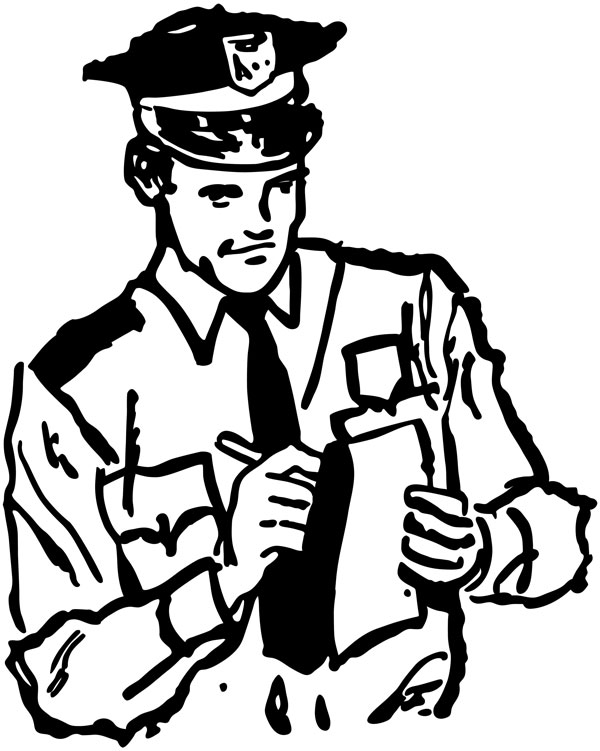In most DWI cases in Missouri, a police officer needs probable cause to suspect that a person is driving while under the influence. However, when a DUI/DWI checkpoint or sobriety checkpoint is set up, the regular laws fall away, this does not mean that sobriety checkpoints, though widely debated throughout the United States, are unlawful. Currently, 13 states in the US have outlawed DWI checkpoints, Missouri is not one of those states. Even though Missouri has not made DUI checkpoints illegal, the Missouri House Appropriations Committee has allocated only $1 per year for them, according to this article from 2018. This means that though lawful, DUI checkpoints in Missouri are not widely common, nevertheless, it’s critical to know what to expect at a sobriety checkpoint, what your rights are, and how you should act should you ever come across a DUI checkpoint.
If you need a DUI lawyer, contact DWI Springfield today.
What To Expect at a Sobriety Checkpoint in Missouri

When you see a roadblock for a sobriety checkpoint, drivers will be asked to produce identification and proof of insurance just like you would expect if you were pulled over in a regular situation. During this encounter, police officers are trained to look for telltale signs that intoxication may be present. If a police officer has probable cause to believe that the driver is under the influence of alcohol or drugs, they may request the driver to submit to standardized Field Sobriety Tests. Under Missouri law, licensed drivers are under no obligation to perform physical sobriety tests and will not face any consequences if they refuse to perform them. However, if a chemical test is requested, refusal of a chemical test will result in immediate administrative action (license suspension or revocation).
If you are asked to submit to a chemical test under suspicion of a DWI in Missouri, ask to call your DWI lawyer immediately, instead of refusing to take any test.
Whether or not checkpoints should be legal because of the 4th Amendment remains a point of contention across the nation. To make sure that checkpoints are legal and don’t violate a person’s search and seizure rights (as outlined in the 4th Amendment), DUI checkpoints should be comprised of the following elements:
- The date, time, and location of the sobriety checkpoint should be announced to the public.
- The checkpoint should be placed in an easy-to-access location, with safety measures such as warning signs and signal lights to show there is a stop up ahead.
- An unbiased and objective protocol needs to be in place in terms of which drivers are stopped and questioned. This could include, stopping every vehicle that comes to the DUI checkpoint, selecting a car by a numerical pattern (every 4th car, every 3rd car, etc.), or stopping cars that clearly show signs of impairment.
- It is illegal for law enforcement officers to select a stop based on age, race, sex, vehicle make, or anything else. Selections must be neutral.
- A driver should only be stopped for the amount of time it takes for a police officer to check for signs of impaired drivers, or about five minutes.
How To Act At A Sobriety Checkpoint in Missouri

Finding out that you’re going to have to stop at a sobriety checkpoint in Missouri can be annoying. To make sure the DUI checkpoint doesn’t ruin your night and goes as smoothly as possible follow these tips for how to act, what to do and what not to do if end up in the checkpoint lane:
- First things first. While it’s technically not illegal to turn away from a DUI checkpoint, in most cases police officers will be strategically placed down around the checkpoint to see if any vehicles do turn around and if they do so legally. Turning away from a checkpoint raises suspicion and in most cases, you’ll end up getting stopped and questioned by the police anyway. For that reason, we do not advise turning away from the checkpoint, unless you have nothing to hide.
- Just like a regular traffic stop, the officers will ask for your driver’s license, registration, and proof of insurance. Do not reach for these until asked.
- You are under no obligation to answer questions like, “Have you been drinking tonight?” Politely answer questions that you can and avoid answering questions that will put you in a legal situation. If you are ever unsure, you can ask to immediately speak with your DWI attorney in Missouri.
- At a DWI checkpoint, the police do not have the right to search your vehicle unless they have probable cause. If your car smells like alcohol or drugs, or if beer cans, bottles of alcohol, or drug paraphilia are visible, that’s enough cause for a legal search. Or, if you permit the police officers to search your vehicle.
- Stay calm and be polite. Being pulled over at any time can make someone nervous, waiting to be questioned by the police at a DWI checkpoint can heighten that nervousness. Try to remain calm and be polite when asked questions.
- If you are showing signs of impairment such as slurred speech, red, watery eyes, difficulty answering simple questions, or other physical signs you may be asked to perform a series of Field Sobriety Tests. You have the right to refuse these. But, once a chemical test is requested (breathalyzer, saliva, urine, or blood) if you refuse these you will face license suspension in Missouri. Your best plan is to contact DWI Springfield immediately.
If you are facing DWI charges in Missouri as a result of a Sobriety checkpoint stop, contact our experienced criminal defense attorney at DWI Springfield today to set up a FREE and confidential consultation.
